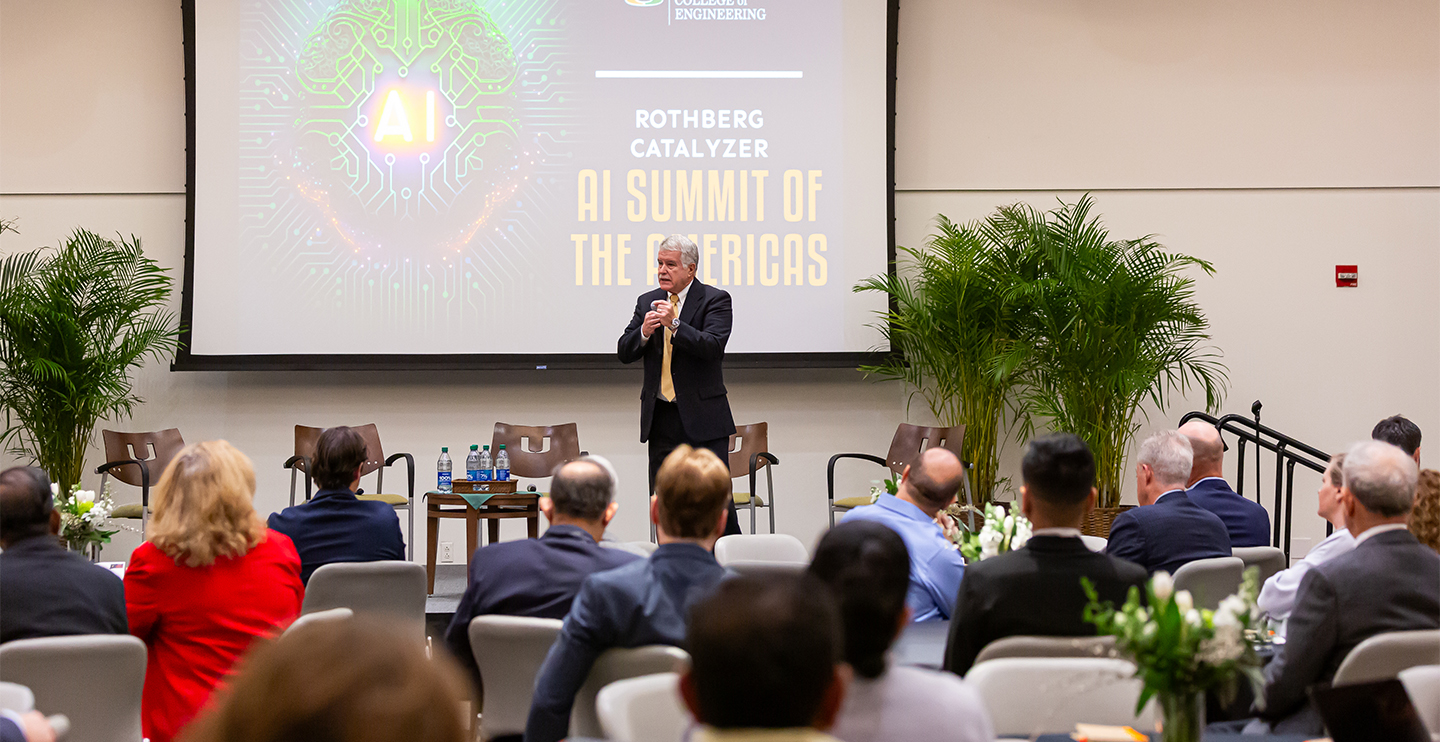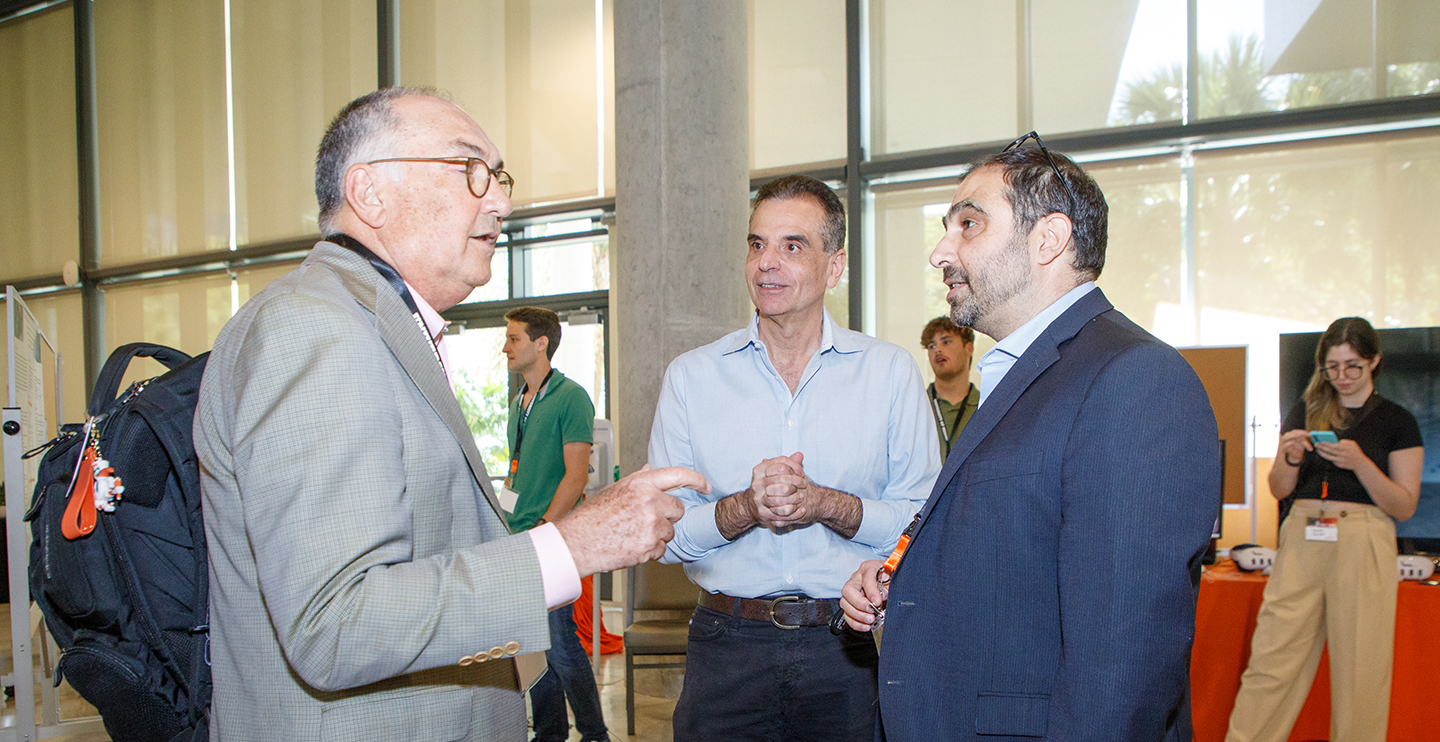When it comes to the future of precision medicine, SIVOTEC Inc., creator of the GENA™ platform, is leading the charge and its partnership with the University of Miami’s Frost Institute for Data Science and Computing (IDSC) is a key component of that advancement. By developing and scaling the next-generation GENA Private Language Model, a purpose-built artificial intelligence system, genomic insights will be brought directly into clinical care.
“The GENA-IDSC partnership is about more
than just deploying new technology,
it is laying the groundwork for healthcare that is
predictive, personalized, and proactive.”
This initiative is a pivotal advancement in the integration of AI and healthcare, particularly in the diagnosis and treatment of rare and complex genetic conditions. The GENA-IDSC partnership is about more than just deploying new technology, it is laying the groundwork for healthcare that is predictive, personalized, and proactive.
At the partnership’s core is an innovative AI tool known as a Private Language Model (PLM). Unlike general purpose models trained on vast amounts of internet data, a PLM is a domain-specific, secure, and curated system, optimized for specific applications, like healthcare.
GENA is trained on thoroughly vetted genetic, biomedical, and clinical data, enabling it to interpret complex genomic information, to propose evidence-based treatments, and to communicate findings that are easily understandable to both specialists and general practitioners.
 “One of GENA’s most compelling aspects is its ability to dramatically reduce the time needed to diagnose rare diseases, especially in children,” explained Justin Gammage, Director of Partnerships at IDSC. “In the past, identifying rare genetic disorders could take weeks because it required intensive manual review by geneticists. Now, GENA can produce diagnostic insights in just seconds by analyzing genetic sequences and matching them to known disease markers. That is what sets this technology apart and makes it so vital to the future of healthcare.”
“One of GENA’s most compelling aspects is its ability to dramatically reduce the time needed to diagnose rare diseases, especially in children,” explained Justin Gammage, Director of Partnerships at IDSC. “In the past, identifying rare genetic disorders could take weeks because it required intensive manual review by geneticists. Now, GENA can produce diagnostic insights in just seconds by analyzing genetic sequences and matching them to known disease markers. That is what sets this technology apart and makes it so vital to the future of healthcare.”
To date, GENA has been used in more than 160,000 pediatric cases across 40 countries, primarily in children’s hospitals, with remarkable success in identifying rare diseases that previously went undiagnosed or were discovered too late for effective intervention.
 Christopher Mader, Senior Director of Systems and Data Engineering at IDSC, shared how GENA’s strength is not size, but specificity.
Christopher Mader, Senior Director of Systems and Data Engineering at IDSC, shared how GENA’s strength is not size, but specificity.
“GENA represents a huge leap in how AI can support frontline healthcare. Its precision and trust is helping build a system clinicians can rely on in real time without second-guessing whether the model’s suggestions are medically valid or safe.”
The platform uses verified sources like the National Institutes of Health and Johns Hopkins University to ensure recommendations are grounded in evidence rather than assumptions. This allows GENA to maintain compliance with HIPAA and other data privacy regulations, making it viable for integration in academic medical centers as well as broader health systems.
“By design, GENA goes beyond just producing accurate results,
it delivers them in a way that promotes
clinical understanding and patient empowerment.”
One of GENA’s most compelling aspects is its natural language generation capability, which allows it to deliver insights in language tailored to the end-user, from geneticists to general practitioners, or even patients and their families. By design, GENA goes beyond just producing accurate results, it delivers them in a way that promotes clinical understanding and patient empowerment.
 SIVOTEC’s relationship with UM began in 2018 with Pete Martinez, IDSC Industry Advisory Board Chair and SIVOTEC Chairman and CEO, when a breakthrough diagnostic tool created by a pediatric geneticist at the University was identified. That tool was eventually integrated into an early GENA platform, sparking a multi-year evolution that led to the current version.
SIVOTEC’s relationship with UM began in 2018 with Pete Martinez, IDSC Industry Advisory Board Chair and SIVOTEC Chairman and CEO, when a breakthrough diagnostic tool created by a pediatric geneticist at the University was identified. That tool was eventually integrated into an early GENA platform, sparking a multi-year evolution that led to the current version.
The collaboration, under the leadership of IDSC and faculty members like Dr. Kaan Inal, is focused on expanding the platform’s capabilities while incorporating the latest advances in AI, data science and genomics.
 “Geneticists across the United States are already using GENA’s existing data analytics platform,” said Inal. “But we are now moving toward a more advanced, AI-enabled platform and will be adding features to improve usability and diagnostic reach.”
“Geneticists across the United States are already using GENA’s existing data analytics platform,” said Inal. “But we are now moving toward a more advanced, AI-enabled platform and will be adding features to improve usability and diagnostic reach.”
As the team behind GENA look ahead to the next iteration of the platform, GENA 2.0, which is scheduled for release by the end of 2025, they aim to upgrade its capabilities and integrate a more robust version of the PLM. These include real-time genetic interpretation of diseases, personalized treatment recommendations, and explainable AI outputs that allow users to understand the “why” behind its recommendations. Multilingual interfaces will also make GENA accessible on a global scale.
The next GENA platform will offer treatment options tailored to an individual patient’s genes by matching genetic components with trusted research to suggest treatments, while keeping identifying data private and secure. While the current focus is on rare pediatric diseases, SIVOTEC and UM envision GENA growing to cover everything from adult-onset genetic disorders to complex chronic illnesses and even wellness practices.
“We consider this to be a continuous partnership,” noted Gammage. “As the models improve, we hope to expand to proactive, personalized health.”
That growth also extends to global accessibility. As plans move forward to expand GENA’s reach to healthcare providers around the world, it will help underserved populations gain access to diagnostics and treatments that were previously out of reach.

This collaboration will significantly boost economic and technological development in South Florida and beyond. “This is a major opportunity for IDSC to demonstrate that in addition to doing outstanding academic research with faculty across the University, we are also a tremendous resource for businesses in Southern Florida to support their growth and product development,” added Gammage.
By working directly with companies like SIVOTEC, IDSC is showing how academia can serve as an innovation engine, driving the applications that benefit society at large. As GENA continues to evolve through this partnership, one thing is clear: the future of AI in healthcare is anything but generic. It will be personal, trusted and, perhaps most importantly, secure.
By combining the leading AI research capabilities of the University of Miami with the industry expertise and global reach of SIVOTEC, GENA is on track to become a cornerstone of medical diagnostics and treatment. It will transform how healthcare is managed, especially for patients with rare conditions.
by Kimberly Bobson Feldman
Pete Martinez, IDSC Industry Advisory Board Chair and Chairman and CEO of the SIVOTEC family of companies speaks at the University of Miami College of Engineering’s AI Summit of the Americas. PHOTO CREDIT Jenny Abreu Photography

READ MORE: NEWS@TheU story “AI Aids in Detecting Rare Diseases in Children” by Janette Neuwahl Tannen, June 18, 2025



